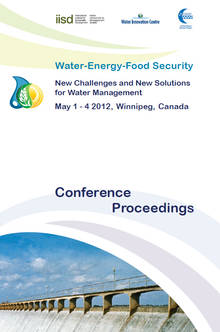In its 2011 report, the World Economic Forum identified the Water-Energy-Food (W-E-F) security nexus as one of the greatest threats to the global economy and sustainable development over the next few decades. In order to respond to these challenges, GWSP launched a survey within its Global Catchment Initiative (GCI) that addresses the nexus between water, energy and food in large transboundary basins as a critical issue at the science-policy interface.
Within this GCI II study, GWSP has undertaken a survey of 18 major river basins across the globe and discussed the findings with scientific experts and basin managers. The results identified several issues to be central to an integrative nexus approach:
- Horizontal and Vertical Integration between Sectors;
- Political Stability for Functioning Institutions;
- The Changing Roles of Rivers and Resulting Management Implications; and
- The Role of Data in Monitoring Change in River Basins.
___________________________________________________________________________________________________________
 Conference on “Water-Energy-Food-Security: New Directions for Water Management”
Conference on “Water-Energy-Food-Security: New Directions for Water Management”
(May 2012, Winnipeg, Canada)
In May 2012, GWSP together with IISD’s Water Innovation Centre organised a conference on water, energy and food security to review the GCI II results and collaborate on findings.
The conference on “Water-Energy-Food-Security: New directions for water management” brought together international experts, opinion leaders, policy-makers and scientists to discuss challenges and review ways to foster a sustainable approach to the development of energy and food resources through improved water management practices.
Further Information:
- The Conference Proceedings (PDF , 4 MB) summaries the discussion and highlights the major findings.
- The resulting Policy Recommendations that were developed during the conference as a contribution from the water science community to Rio+20.
- Conference Presentations: International Institute for Sustainable Development – IISD.
(Please note: the above link is no longer available, and therefore has been removed)